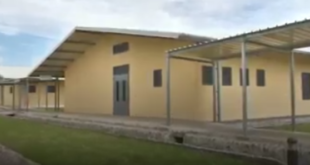
In a recent report, the World Bank has sounded the alarm for Sub-Saharan Africa, highlighting the pressing need for stability, economic growth, and job creation to prevent what could become a ‘lost decade’ for the continent. The report, titled “Africa’s Pulse,” paints a somber picture of the region’s economic prospects, citing rising instability, lackluster growth in major economies, and global economic uncertainties as significant obstacles to progress.
Projections indicate a slowdown in economic growth in Sub-Saharan Africa, with a forecasted rate of 2.5% in 2023, down from 3.6% in 2022. South Africa’s GDP growth is expected to reach only 0.5% in 2023, largely due to persistent energy and transportation issues. Nigeria and Angola are also anticipated to experience sluggish growth at 2.9% and 1.3%, respectively, impacted by lower international prices and currency pressures affecting their oil-dependent economies.
Increased conflicts and violence in the region are further dampening economic activity, potentially exacerbated by climate-related shocks. In Sudan, economic activity is predicted to contract by a staggering 12% due to internal conflict, which hampers production, depletes human capital, and weakens state capacity.
Disturbingly, per capita growth in Sub-Saharan Africa has stagnated since 2015 and is projected to decline at an annual average rate of 0.1% from 2015 to 2025. This trend threatens to mark a ‘lost decade’ of growth following the commodity price crash of 2014-15.
The impact of this economic slowdown falls disproportionately on the region’s poorest and most vulnerable populations. Weak growth translates into slow poverty reduction and a dearth of quality job opportunities. With up to 12 million young Africans entering the labor market each year, urgent action is needed to transform economies and create better jobs.
Despite these challenges, there are some positive developments. Inflation is expected to decrease from 9.3% in 2022 to 7.3% in 2023, and fiscal balances are improving in countries implementing prudent macroeconomic policies. The Eastern African community (EAC) is anticipated to grow by 4.9% in 2023, while the West African Economic and Monetary Union (WAEMU) is set to grow by 5.1%. However, debt distress remains a pervasive issue, with 21 countries at high risk of external debt distress as of June 2023.
The report emphasizes that current growth rates are insufficient to generate enough high-quality jobs to accommodate the expanding working-age population. Current growth patterns result in only 3 million formal jobs annually, leaving many young people underemployed in unstable work.
To address these challenges, the World Bank recommends a set of policies for Sub-Saharan Africa, including cost-effective private sector reforms, investments in education to boost semi-skilled occupations, and initiatives to improve access to jobs for women. Additionally, creating an ecosystem that supports private sector development and skills that match business demands is crucial.
The report underscores the urgency of the jobs challenge in Sub-Saharan Africa and the immense potential of harnessing the region’s demographic transition for economic growth. However, addressing these issues requires a comprehensive approach that tackles instability, encourages economic diversification, and invests in the continent’s human capital.
 GhArticles.com Every News in Detail
GhArticles.com Every News in Detail



